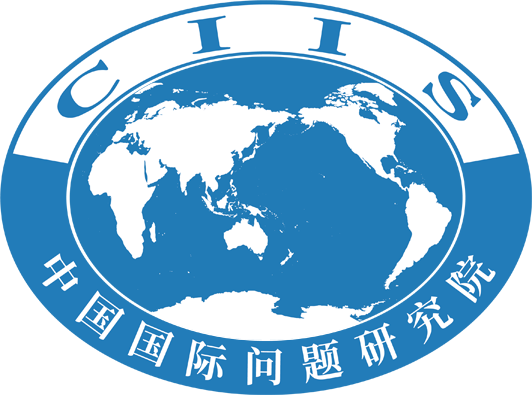President Trump, after taking office, has successively signed a series of executive orders and memoranda which had important impacts on the US internal and external affairs. On the issue of South China Sea, Trump and his team released a complicated signal, causing concerns about the situation in the South China Sea and the Sino-US relations. At present, Trump’s South China Sea policy is uncertain. On the one hand, Trump and some of his advisers, being lack of in-depth understanding of the sensitivities in the South China Sea, advocated toughness towards China and their precaution mentality on China was on the rise. On the other hand, Trump would not let military conflict with China disturb the overall objectives of his presidency, nor would he be willing to pay the price for other countries in the South China Sea dispute without getting any returns. Facing the potential risks, China will promote the smooth development of Sino-US relations and take precautions and initiative on the issue of South China Sea.
I. Trump’s South China Sea Policy Has Not Yet Taken Shape
Trump and his team criticized China over the islands and reefs construction activities in the South China Sea. When he was President-elect, Trump accused China on the social media for building a massive military complex in the middle of the South China Sea without seeking the US’s advice. Secretary of State Tillerson said at his confirmation hearing that China’s possession, control or claim in the South China Sea is illegal and is akin to Russia’s annexation of Crimea, suggesting that the United States requires China to stop and block China’s access to these islands. White House spokesman Sean Spicer, when asked if Trump agreed with the comments by Tillerson at his first press conference, said that it’s a question of if those islands are in fact in international waters and not part of China proper, then yeah, we’re going to make sure that we defend international territories from being taken over by one country.
Some Western media took the opportunity to play up the dangerous situation of military confrontation between the United States and China in the South China Sea. They believe that once the United States tries to block China’s access to the islands and reefs, it may face a powerful counterattack that is beyond the imagination of many. Although there is a gap in the overall military power between the United States and China, Chinese Navy possesses submarines, anti-ship missiles and other weapons specifically designed to eradicate important US Navy assets, with which China could, to a certain extent, prevent or obstruct the approaching by enemy Navy.
The tough remark on the South China Sea of Trump’s important advisers has been dug up and reheated. Trump’s Chief Strategic Adviser Steve Bannon predicted during an interview in March 2016 in the Heritage Foundation that there would be a war between China and United States on the South China Sea in 5 to 10 years. His remark was quoted by many media as evidence that the United States would provoke confrontation against China in the South China Sea. Some media even claimed that Bannon, who is hostile to China, had decisive influence on Trump’s policy making towards China, thus, the overall US policy toward China would be hostile and tough.
The seriousness of relevant statements by Trump and his team on the South China Sea was questioned. When Trump was President-elect, his words on the social media is kind of emotional catharsis rather than serious policy thinking. Tillerson’s remark of blocking the island was even refuted by the Western media, regarding it’s not in line with international law. Some media interpreted this as his nonsense after a long day hearing. Spicer threatened to defend the islands, but failed to explain what action United States would take.
Some US officials pointed out that it is inevitable for the President and his staff to be unprofessional in the early period after taking office. Trump is a non-establishment figure, lacking of administrative experience, even if he tries hard to make it up, it is difficult for him to get familiar with all regional and international hot issues in a short period of time. Secretary Tillerson has outstanding management ability, but knows little about foreign affairs. It’s difficult for him to cover each ends to cope with the confirmation hearing. White House spokesman also needs some time to adapt to the pressure from the media. At present, the risk of changes in the cardinal principle of the US’s South China Sea policy by the Trump administration cannot be ruled out. During the Obama administration, Obama himself and many high-level officials, including the Secretary of State, have repeatedly expressed that the United States did not hold a position on territorial disputes in the South China Sea. This statement could not only effectively avoids the political cost of taking sides on the sovereignty disputes, but also helps maintain policy flexibility and operational space for the United States.
Some US officials and scholars believe that the South China Sea policy of the Trump administration is gradually taking shape, and will finally return to the principle position of the Obama administration, which is clearly reflected in the statement made by the newly-appointed Defense Secretary Mattis when he visited Japan. Mattis underscored the keynote of peacefully resolving the disputes in South China Sea, suggesting that diplomacy should be the priority in the South China Sea; emphasizing freedom of navigation, requesting to maintain unimpeded sea route; taking military actions as a means to support diplomatic endeavor, avoiding radical military actions. These positions are in line with the inherent US South China Sea policy, showing that Trump’s cabinet members are integrating into their roles and begin to understand the need to maintain policy coherence and continuity.
The bureaucratic system of the United States will play a buffer role in preventing major mistakes in the President’s decision making. Every President of the United States tries to realize their personal thoughts and preferences. Trump is considered to have a strong personal style, he is anxious to implement his campaign commitments after taking office. Therefore, the influence of Trump on the American bureaucratic system cannot be underestimated. Meanwhile, the president should also gradually understand the existing policy position of state on a series of issues, and rely on the wisdom of his team and officials to deal with relevant matters. The president and the bureaucracy are mutual shaping. The US military holds a consistent tough position on the South China Sea. But Mattis made a restraint remark during his first trip to Asia, which reflected the adjustment of the US’s position on the South China Sea towards a rational direction, also was interpreted as a piece of information Mattis passed to Trump, reminding him not to make any misjudgment.
II. Military Conflict in the South China Sea between China and the United States Is Unlikely to Happen
Based on the uncertainty and immaturity of Trump’s foreign policy, the uncertainty in the South China Sea is rising, but it does not mean that Trump has decided to use force in the South China Sea to contend with China.
Trump upholds the principle of American first, giving priority to the US interests. To Trump, any move to pull the chestnuts out of the fire for the claiming states in the South China Sea is unwise. The interests of the United States in the South China Sea are not based on the defeat of China. The stability in the South China Sea is also in line with the needs of economic and trade development of the United States.
Trump was in no hurry to prove his ability of presidency by changing the situation in the South China Sea. After taking office, Trump quickly fulfilled a number of commitments made during his campaign and demonstrated his power of action to gain the confidence and recognition of the American people. Handling the South China Sea issue is difficult, the effect is uncertain, therefore, it is not the priority on his agenda.
Trump is currently more concerned about Sino-US economic and trade exchanges. Trump repeatedly mentioned the trade deficit, intending to make the South China Sea as his bargaining chip with China. But once the conflict occurs, it will lose deterrent.
III. China Should Maintain Strategic Composure
Since 2016, China has properly handled the South China Sea issue, and has gained initiative to a certain extent. China and the Philippines jointly decided not to encumber the development of bilateral relations by the South China Sea issue. The two countries, through a joint communiqué, underscored that they would not resort to the use or threat of force and would carry out friendly consultations and negotiations between related sovereign countries and begin to explore the possibility of establishment of bilateral consultation. Against the background that China and the Philippines returned to the track of bilateral negotiations and resorted to the constructive way to address the controversy, it is unlikely that the United States would reheat the South China Sea arbitration. In addition, the Duterte government adjusted its policy towards the United States and is not willingly to act as the daring vanguard to challenge China. It’s difficult for the United States to step in the South China Sea behind the Philippines.
Japan intended to disrupt the South China Sea by supporting the concept of freedom of navigation, and coordinating with the United States to put pressure on China on the South China Sea issue. But Japan has a prejudgment on China’s bottom line and is reluctant to draw sharp responses from China, so Japan has not made it clear that it would join the US’s patrol in the South China Sea. ASEAN countries, worrying that the situation in the South China Sea would get out of control, do not approve the muscular behaviors of the United States in the South China Sea.
To deal with the uncertainty of the Trump’s South China Sea policy, China should take maintaining the momentum of development as its primary task. A rising China will not only gain more respect and attention from other countries, but also be confident to respond to emergencies. With the gradually improved comprehensive national strength and international influence, China is able to work with all countries to create an international environment conducive to peace and common development. The Trump administration will gradually realize that no conflict, no confrontation, mutual respect and win-win cooperation is the basis for the development of Sino-US relations, and is in the best interests of the United States.
At the same time, it is necessary for China to warn the new US government of the consequences in an appropriate way. Trump should understand that China’s bottom line of its South China Sea policy will not change. China will resolutely defend its sovereignty, opposing any foreign forces including the United States to intervene in the South China Sea, and disturb the situation. China will adhere to the bottom-line thinking, expect the situation in the South China Sea develop in a good direction, urge the US government to speak and act cautiously, thus playing an active role for the peace and stability in the South China Sea. China will also prepare for the worst to be ready to deal with the ever-changing situation in the South China Sea.
Su Xiaohui is Deputy Director, Department for International and Strategic Studies of China Institute of International Studies.
(Source: China’s Initiatives: Responses to an Uncertain World,World Affairs Press, 2017.)



